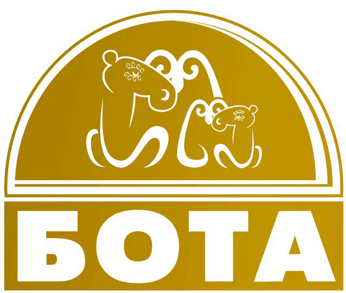 The agreement to start the Foundation emerged in 2007 after more than two years of discussion between the Governments of the United States, Switzerland and Kazakhstan (known as “the Parties”) about the disposition of $84 million, plus interest, that had been frozen in a Swiss account since 1999.
The agreement to start the Foundation emerged in 2007 after more than two years of discussion between the Governments of the United States, Switzerland and Kazakhstan (known as “the Parties”) about the disposition of $84 million, plus interest, that had been frozen in a Swiss account since 1999.
That account was controlled by the Government of Kazakhstan.
The funds in it were suspected by the U.S. authorities to be laundered bribes facilitated by James Giffen, an American who was arrested in 2003 for contravening the Foreign Corrupt Practice Act.
Giffen was the main intermediary between several U.S. oil companies and the then, and current, president of Kazakhstan, Mr. Nursultan Nazarbayev and his top aides.
While it was never proven in court, a federal indictment alleged that payouts of millions of dollars were made through Giffen to Kazakhstan's political elite. From 1996 to 1998, four U.S. companies working with Giffen's Mercator Corporation landed oil exploration deals -- Mobil, Amoco, Texaco and Phillips Petroleum.
The 2007 agreement to start BOTA was brokered by the World Bank, and among its conditions were that an international non-governmental organization be selected via a competitive tender to start and operate the foundation. This tender was won in 2008 by a U.S. non-profit, IREX, in association with Save the Children, and BOTA Foundation opened its doors in February 2009, operated for five and a half years, and closed at the end of 2014.
BOTA’s mission was to improve the welfare of impoverished children, youth and their mothers in Kazakhstan through three core programs: Conditional Cash Transfer, Social Service (grants to local non-profits to provide an array of services to vulnerable children, youth and mothers) and a scholarship program called the Tuition Assistance Program (TAP). While the original goal for BOTA was to assist around 75,000 beneficiaries, in the end, the number helped was more than doubled.
The BOTA Foundation honestly and accountably returned approximately $80 million of the $115 million it had available to spend directly to poor Kazakhstani children, youth and mothers during the five and a half years it was operational. The foundation’s three programs benefited more than 200,000 people, in every part of Kazakhstan, the world’s ninth largest country geographically. Every penny was tracked. Annual audits by an international standard accounting firm never found any irregularities. The World Bank, which monitored the Foundation’s financial and programmatic performance, noted in its final report on the Foundation:
Looking back over six years of BOTA’s operation, its achievements have been significant. The Parties (the Governments of the U.S., Switzerland and Kazakhstan) came together to address a very specific restitution case and succeeded in creating a mechanism that channeled $115 million to poor children and youth in Kazakhstan in six years. This is a remarkable achievement and one that has few parallels (emphasis added). There were certainly implementation obstacles along the way... but that should not detract from the fact that the goal was achieved, in a timely fashion, with a strong development outcome.”
In my next post I will start to examine why the Foundation was so successful and what its lessons are. For those who cannot stand the suspense and wish to download my recently published case study on BOTA, “The BOTA Foundation: A Model for the Safe Return of Stolen Assets?” please click here.
____
Aaron Bornstein was the Executive Director of BOTA Foundation, employed by a Washington, D.C. based NGO called IREX, from 2011 until its close in 2014. He has worked in eight different countries on a variety of anti-corruption, institution building, poverty alleviation, and other projects. Currently available for new consulting assignments or speaking engagements on stolen asset return, Aaron
www.fcpablog.com, 27.02.2017




